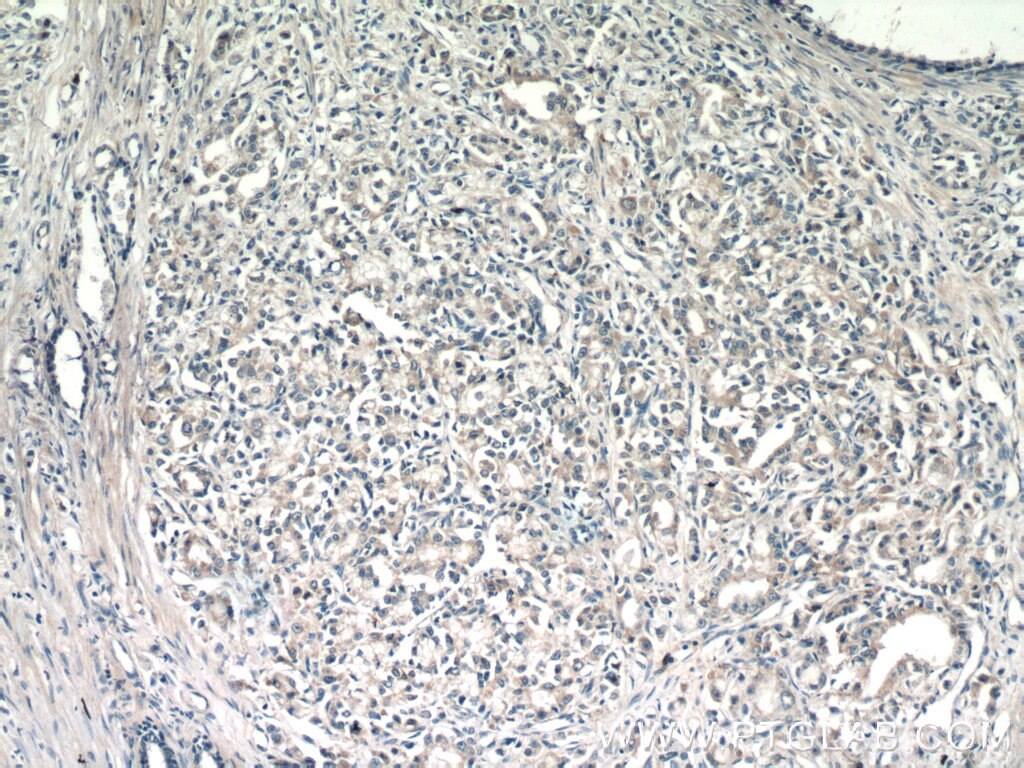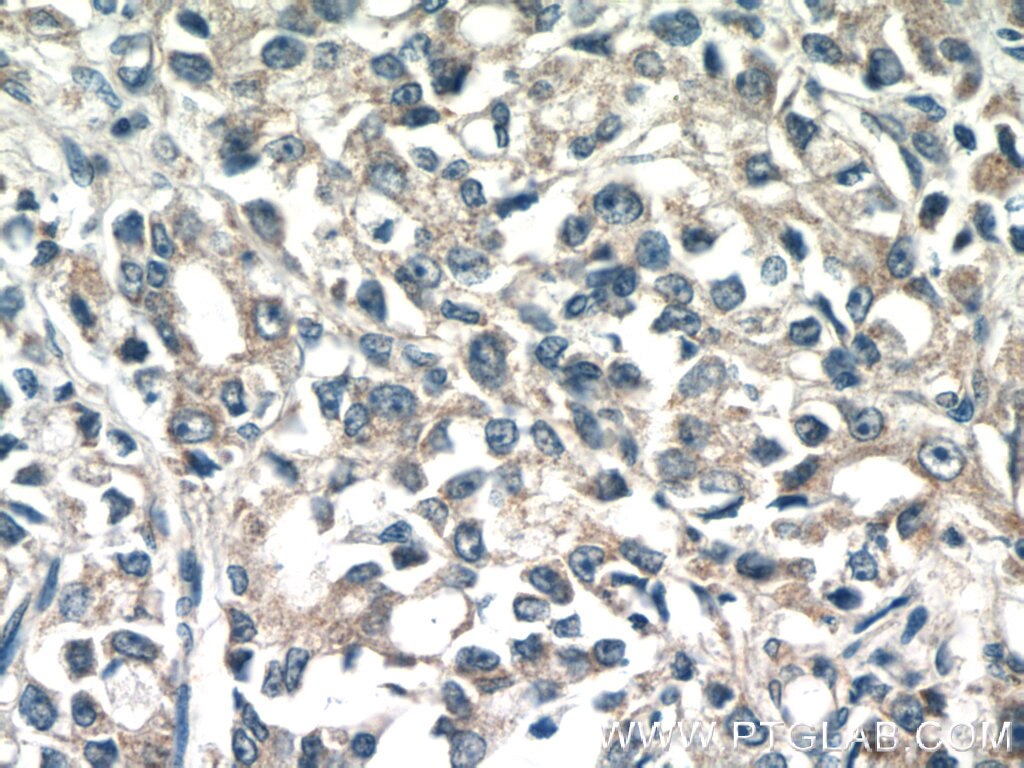TMEM71 Polyclonal antibody
TMEM71 Polyclonal Antibody for IHC, ELISA
Host / Isotype
Rabbit / IgG
Reactivity
human
Applications
IHC, ELISA
Conjugate
Unconjugated
Cat no : 16722-1-AP
Synonyms
Validation Data Gallery
Tested Applications
| Positive IHC detected in | human prostate cancer tissue Note: suggested antigen retrieval with TE buffer pH 9.0; (*) Alternatively, antigen retrieval may be performed with citrate buffer pH 6.0 |
Recommended dilution
| Application | Dilution |
|---|---|
| Immunohistochemistry (IHC) | IHC : 1:20-1:200 |
| It is recommended that this reagent should be titrated in each testing system to obtain optimal results. | |
| Sample-dependent, Check data in validation data gallery. | |
Published Applications
| IHC | See 1 publications below |
Product Information
16722-1-AP targets TMEM71 in IHC, ELISA applications and shows reactivity with human samples.
| Tested Reactivity | human |
| Cited Reactivity | human |
| Host / Isotype | Rabbit / IgG |
| Class | Polyclonal |
| Type | Antibody |
| Immunogen | TMEM71 fusion protein Ag10161 相同性解析による交差性が予測される生物種 |
| Full Name | transmembrane protein 71 |
| Calculated molecular weight | 232 aa, 26 kDa |
| GenBank accession number | BC105783 |
| Gene symbol | TMEM71 |
| Gene ID (NCBI) | 137835 |
| RRID | AB_2878304 |
| Conjugate | Unconjugated |
| Form | Liquid |
| Purification Method | Antigen affinity purification |
| Storage Buffer | PBS with 0.02% sodium azide and 50% glycerol pH 7.3. |
| Storage Conditions | Store at -20°C. Stable for one year after shipment. Aliquoting is unnecessary for -20oC storage. |
Background Information
TMEM71 is a transmembrane protein which was found to be associated with the glucocorticoids (GC) response status of the Acute Graft-versus-Host Disease (aGvHD) patients.
Protocols
| Product Specific Protocols | |
|---|---|
| IHC protocol for TMEM71 antibody 16722-1-AP | Download protocol |
| Standard Protocols | |
|---|---|
| Click here to view our Standard Protocols |
Publications
| Species | Application | Title |
|---|---|---|
Hum Cell Identification and validation of an m6A-related gene signature to predict prognosis and evaluate immune features of breast cancer |



